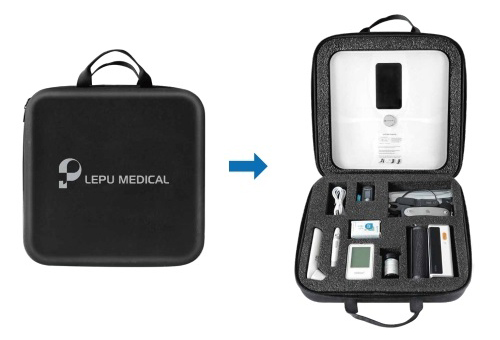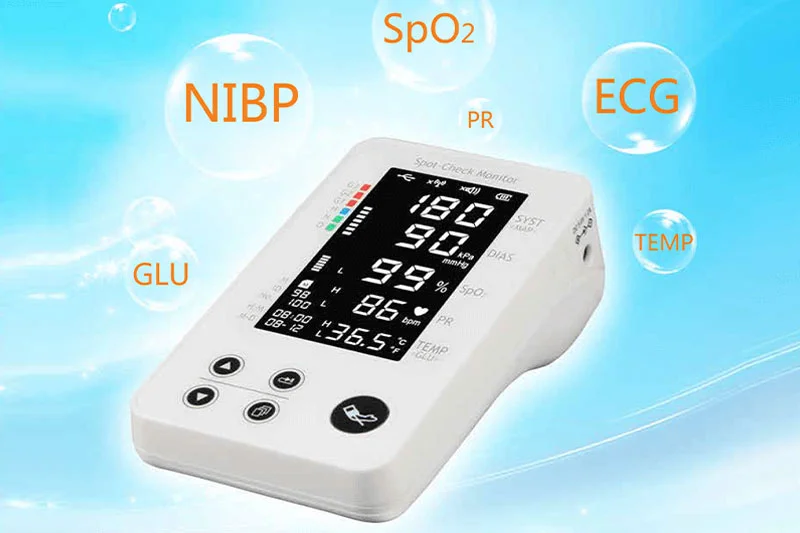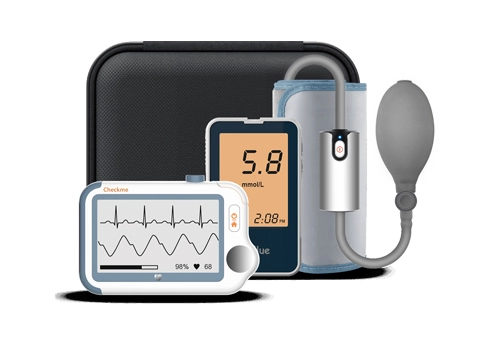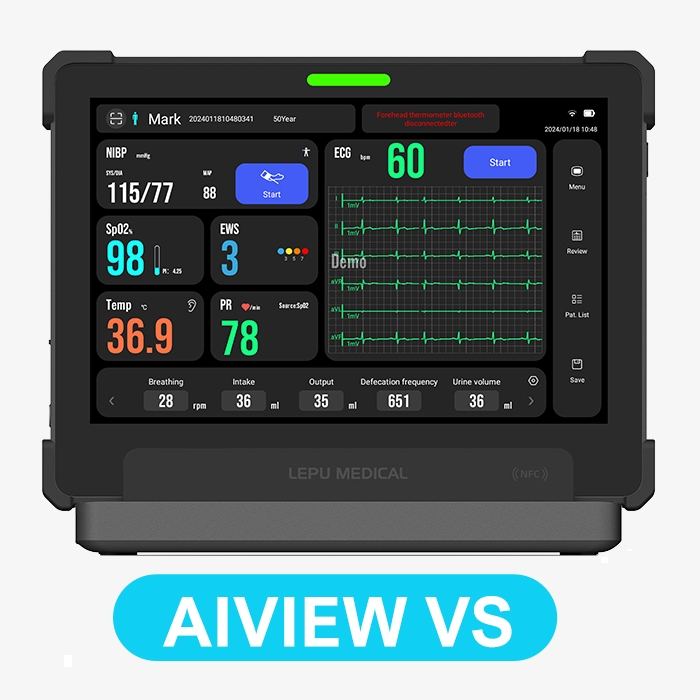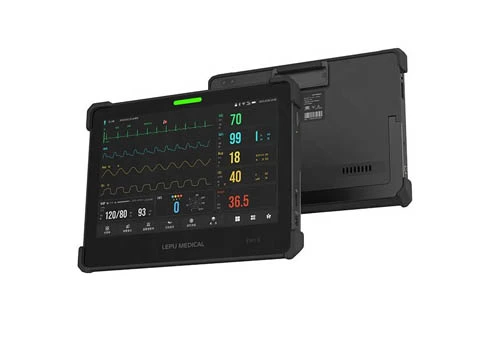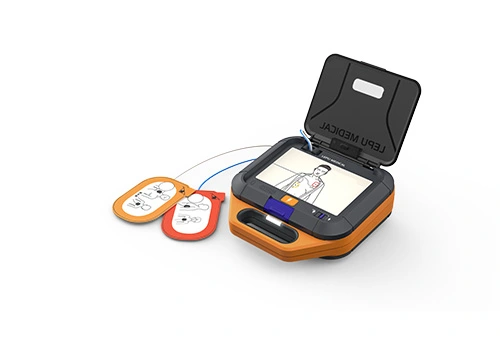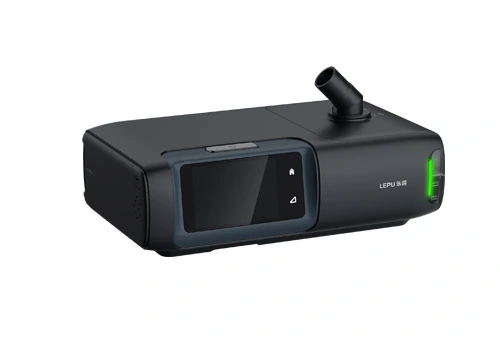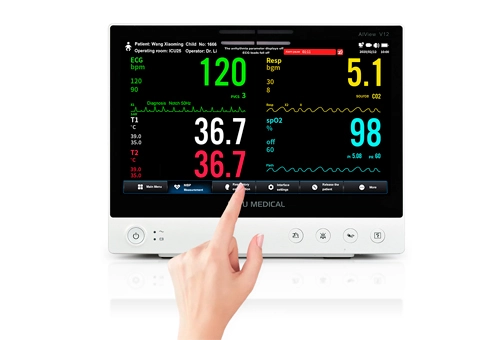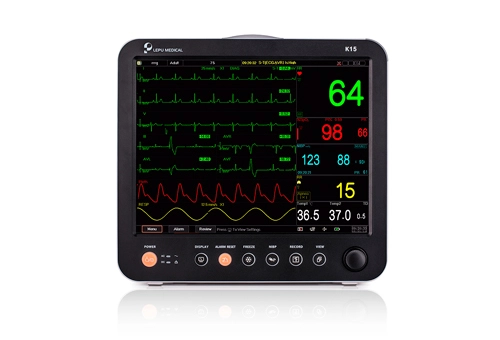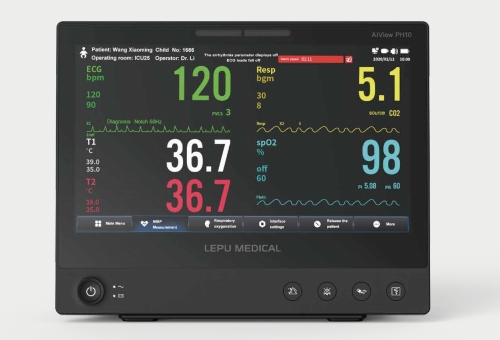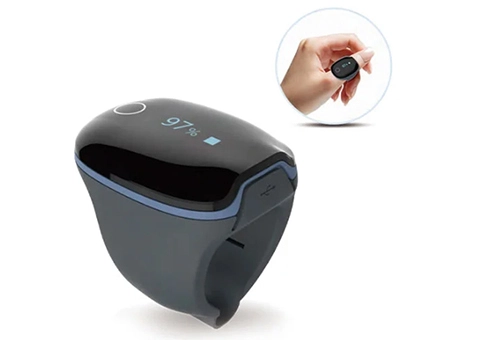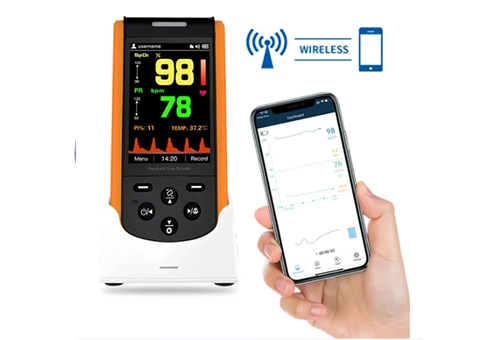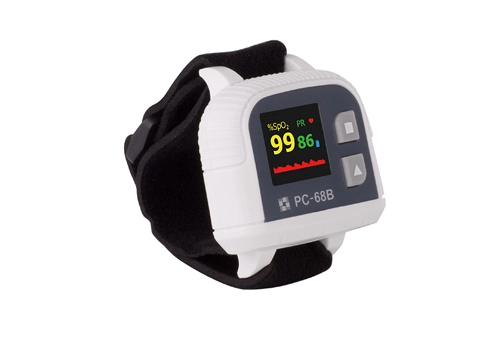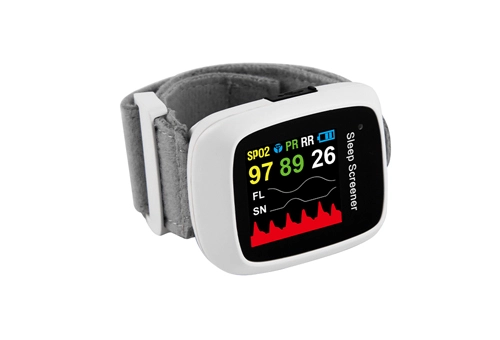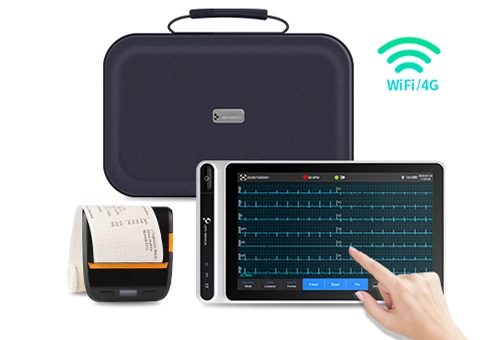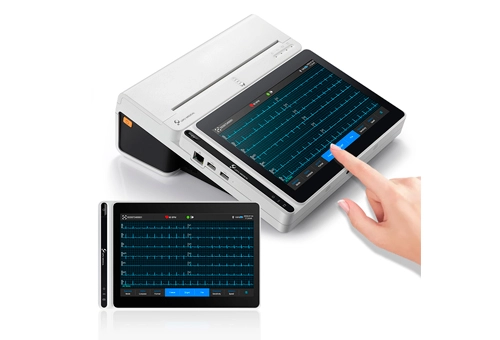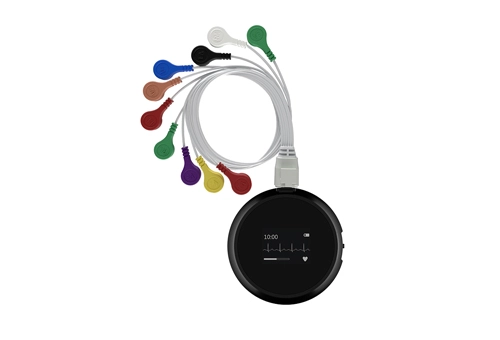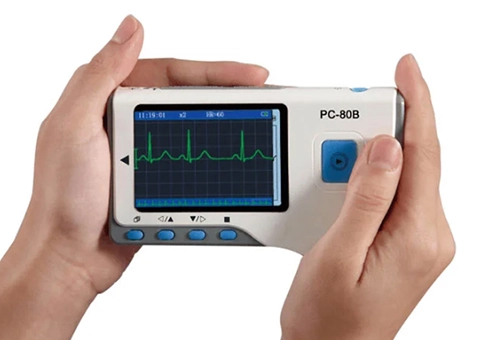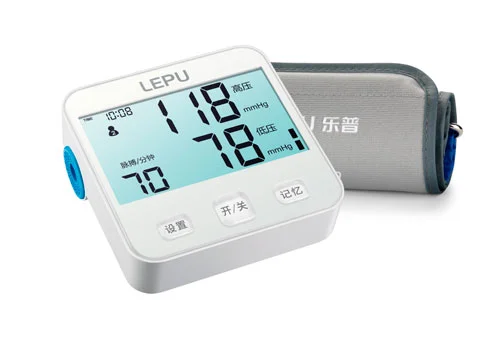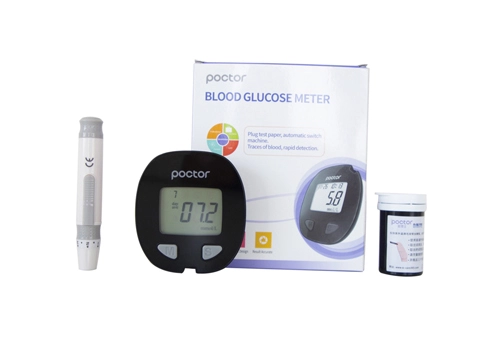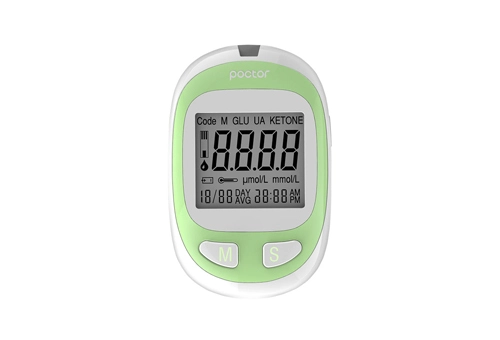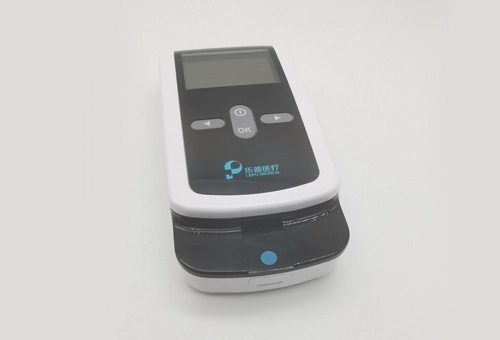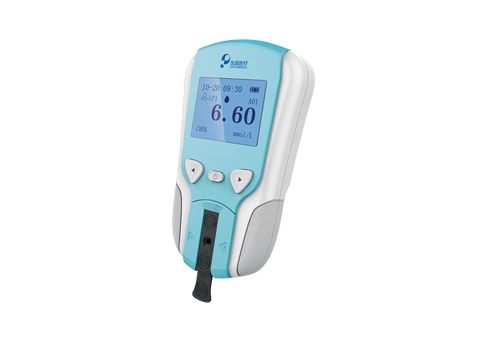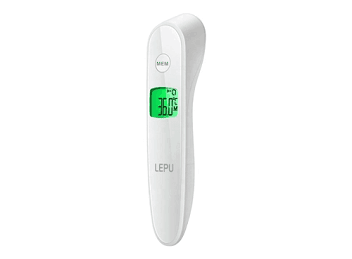Portable Vital Signs Monitor: Safeguarding Health Anytime, Anywhere
A portable vital signs monitor is a portable device used to monitor and record vital signs in real-time, suitable for use in various environments such as homes, hospitals, ambulances, and outdoors. These devices are typically compact and lightweight, making it easy for users to access health information anytime, anywhere. Below is a detailed introduction to the portable vital signs monitor:
Main Functions of the Portable Vital Signs Monitor
Heart Rate Monitoring: Real-time monitoring of heart rate, usually acquiring data through photoplethysmographic technology or electrode patches.
Blood Oxygen Saturation (SpO2) Measurement: Non-invasively measures the oxygen saturation in the blood, helping assess the respiratory function of the patient.
Blood Pressure Monitoring: Measures systolic and diastolic pressure using an electronic sphygmomanometer or cuff method.
Temperature Monitoring: Quickly measures body temperature, commonly using digital thermometers or infrared thermometers.
Respiratory Rate Monitoring: Records the number of breaths per minute, helping determine the patient's respiratory status.
Design Features of the Portable Vital Signs Monitor
Portability: The device is small in size and lightweight, making it suitable for carrying and daily use, allowing for monitoring at any time.
User-Friendly: The LEPU portable vital signs monitor uses one-touch operation with an intuitive interface that is easy to read and understand.
Data Storage and Sharing: Some models support data storage, allowing for the recording of historical data and synchronization with smartphone apps via Bluetooth or Wi-Fi.
Alarm Function: When monitoring parameters exceed the normal range, the device issues an alert to remind the user or caregivers to intervene.
Applicable Scenarios for the Portable Vital Signs Monitor
Home Health Monitoring: Suitable for patients with chronic diseases (such as hypertension and diabetes), athletes, and health-conscious individuals.
Travel and Outdoor Activities: Convenient for travelers to monitor their health status in outdoor environments.
Emergency and Mobile Medical Use: Suitable for emergency responders to quickly obtain vital signs data in urgent situations.
In summary, portable vital signs monitors play an important role in home health monitoring, aiding users in conveniently understanding their health status at any time. The emergence of these devices not only enhances the convenience of health management but also offers more possibilities for medical services. With technological advancements, these devices will become increasingly intelligent, not only improving the convenience of monitoring but also enhancing data management and analysis capabilities.

